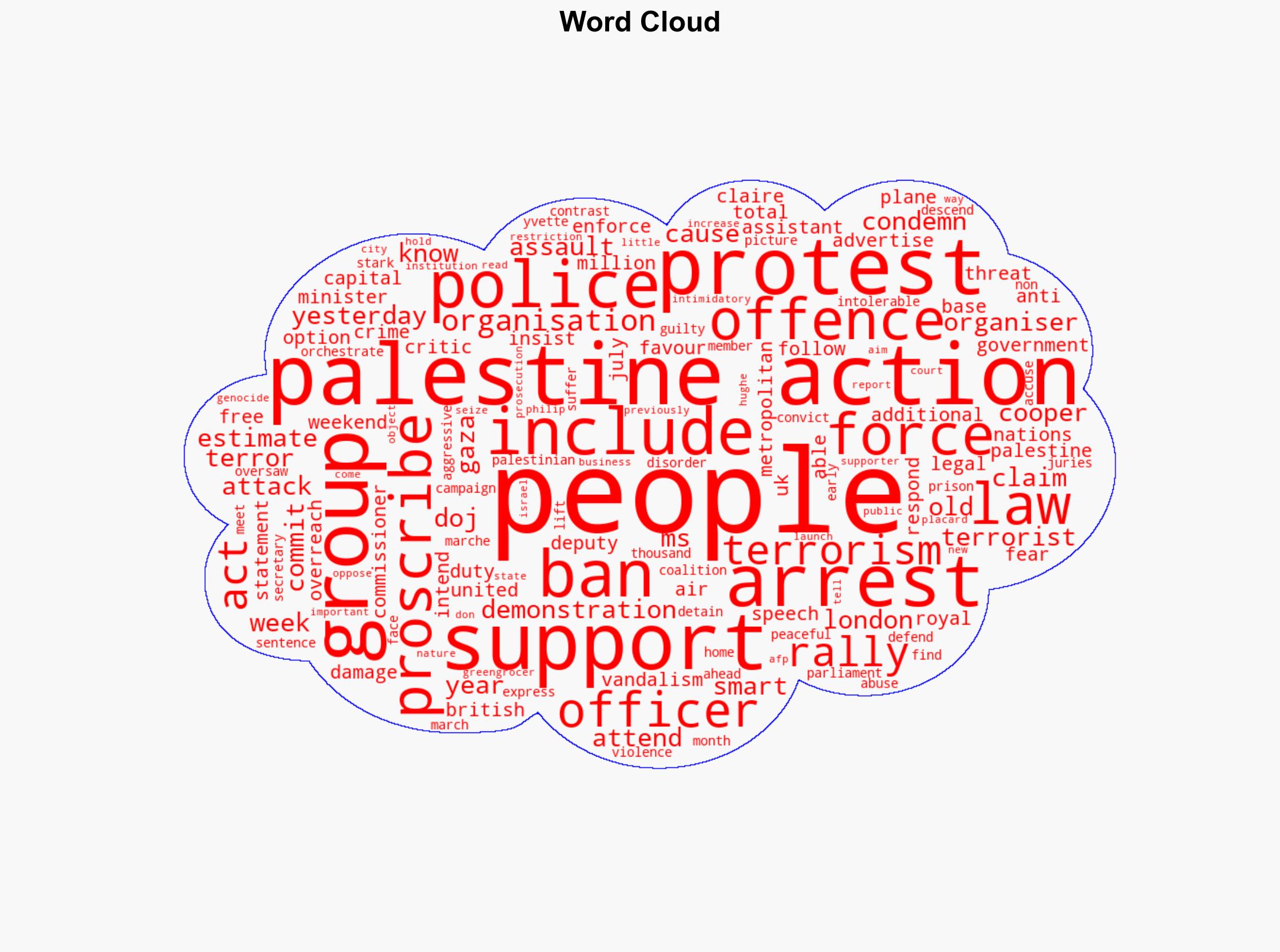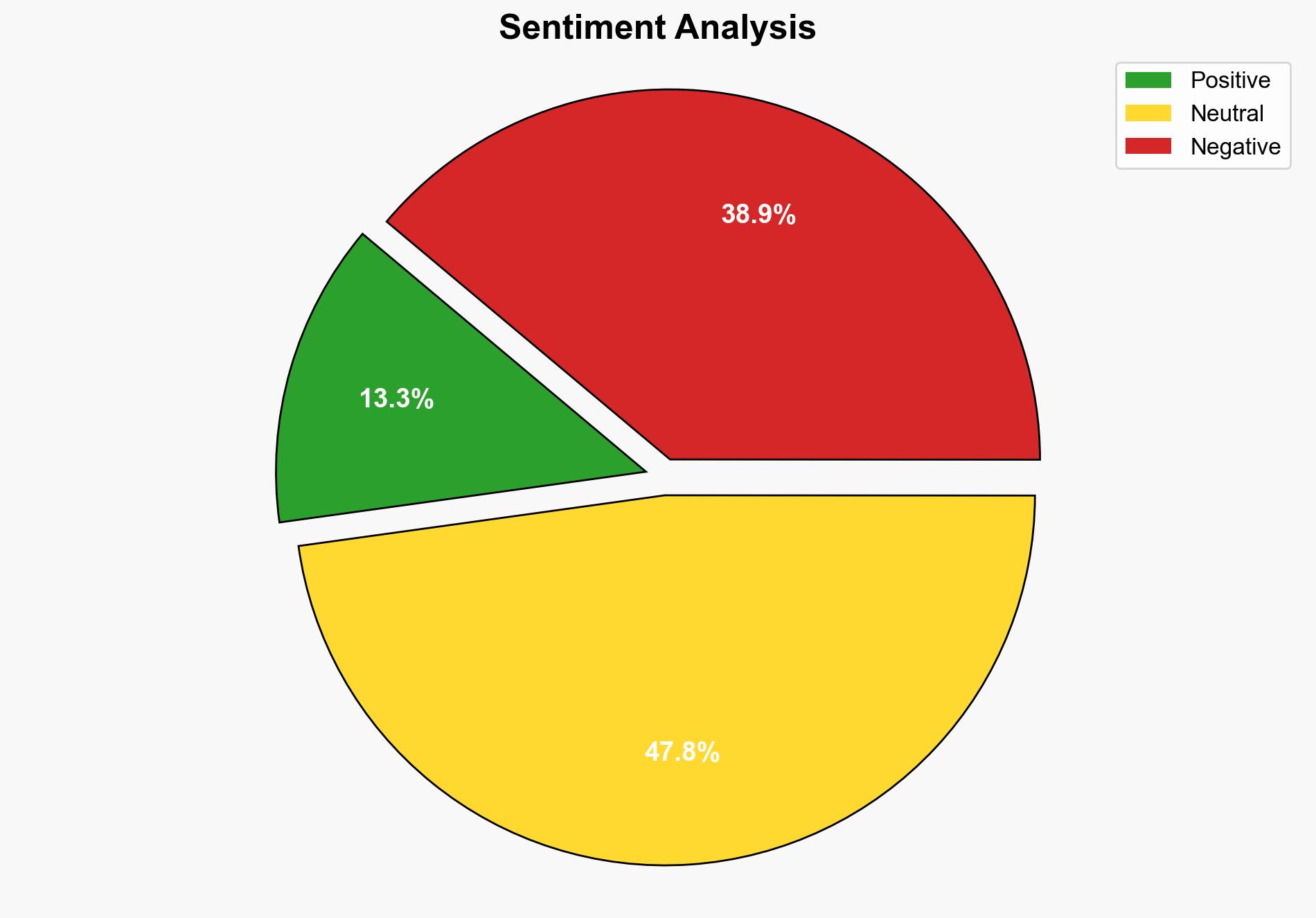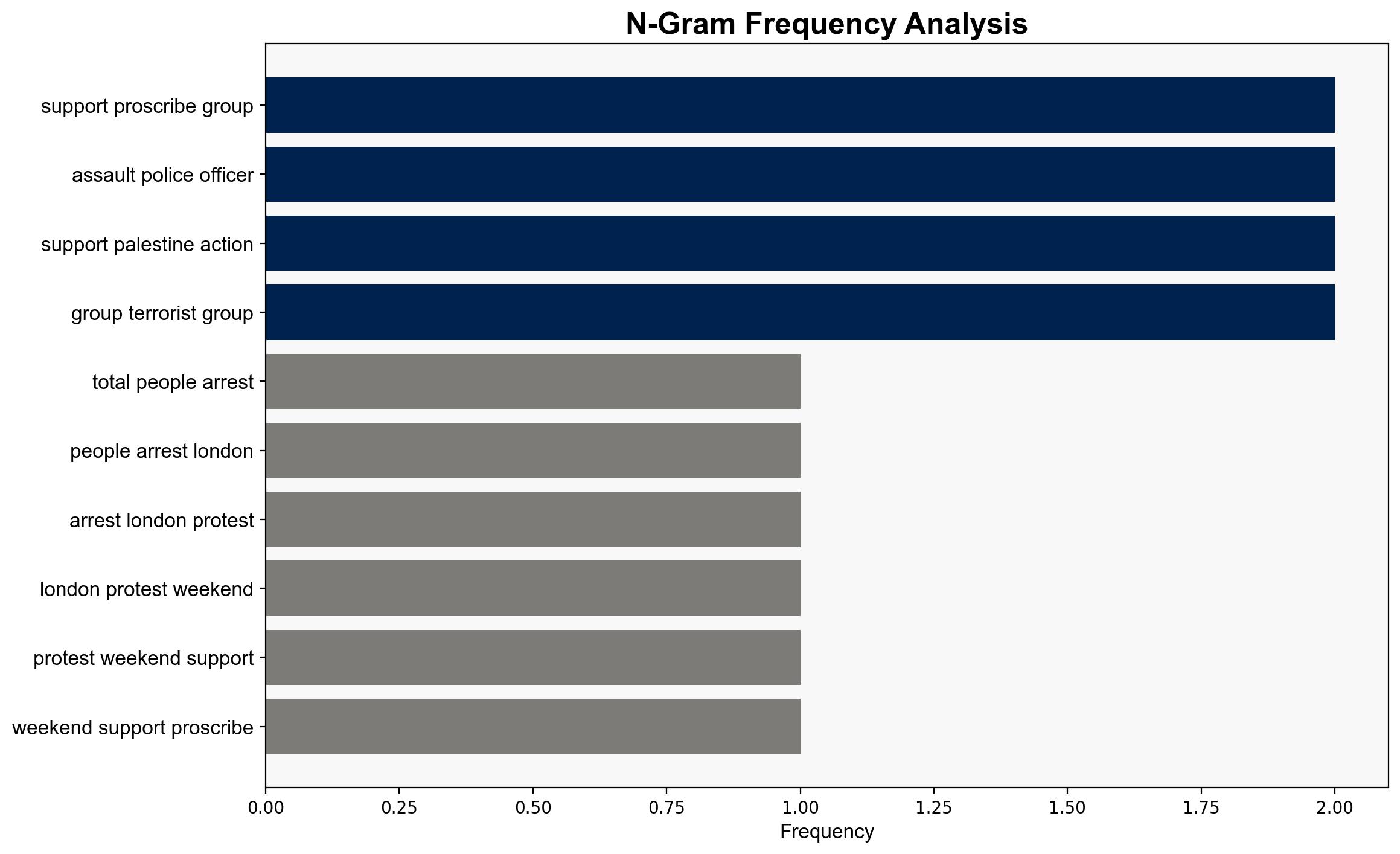UK police arrest 425 people in Palestine Action protest – RTE
Published on: 2025-09-07
Intelligence Report: UK police arrest 425 people in Palestine Action protest – RTE
1. BLUF (Bottom Line Up Front)
The most supported hypothesis is that the UK government’s proscription of Palestine Action under anti-terror laws is primarily a strategic move to curb activities perceived as threats to national security and public order, rather than a direct response to immediate violent threats. Confidence level: Moderate. Recommended action: Reassess the proscription’s impact on civil liberties and potential radicalization, and engage in dialogue with community leaders to address grievances.
2. Competing Hypotheses
Hypothesis 1: The UK government proscribed Palestine Action to prevent potential violent activities and protect national security, as their actions have escalated to significant vandalism and public disorder.
Hypothesis 2: The proscription is an overreach aimed at stifling political dissent and suppressing support for Palestinian causes, potentially exacerbating tensions and increasing support for the group.
Using Analysis of Competing Hypotheses (ACH), Hypothesis 1 is better supported by the evidence of past vandalism and public disorder linked to Palestine Action. However, Hypothesis 2 is supported by criticisms from international bodies like the United Nations, suggesting potential overreach and threats to free speech.
3. Key Assumptions and Red Flags
– Assumption for Hypothesis 1: Proscription effectively reduces the threat of violence and disorder.
– Assumption for Hypothesis 2: The proscription will lead to increased support for Palestine Action.
– Red Flag: Lack of clear evidence linking all arrested individuals to violent acts.
– Blind Spot: Potential underestimation of the proscription’s impact on civil liberties and public perception.
4. Implications and Strategic Risks
– Potential for increased radicalization if the proscription is perceived as unjust.
– Risk of international criticism affecting diplomatic relations.
– Escalation of protests and public disorder if grievances are not addressed.
– Economic impact on businesses targeted by Palestine Action.
5. Recommendations and Outlook
- Engage with community leaders to address underlying grievances and reduce potential radicalization.
- Monitor public sentiment and adjust communication strategies to mitigate backlash.
- Scenario-based projections:
- Best Case: Proscription leads to decreased violence and effective dialogue with dissenting groups.
- Worst Case: Increased radicalization and international condemnation lead to heightened tensions.
- Most Likely: Continued protests with fluctuating intensity, requiring ongoing law enforcement engagement.
6. Key Individuals and Entities
– Claire Smart
– Yvette Cooper
– Philip Hughe
7. Thematic Tags
national security threats, counter-terrorism, civil liberties, public order, regional focus




